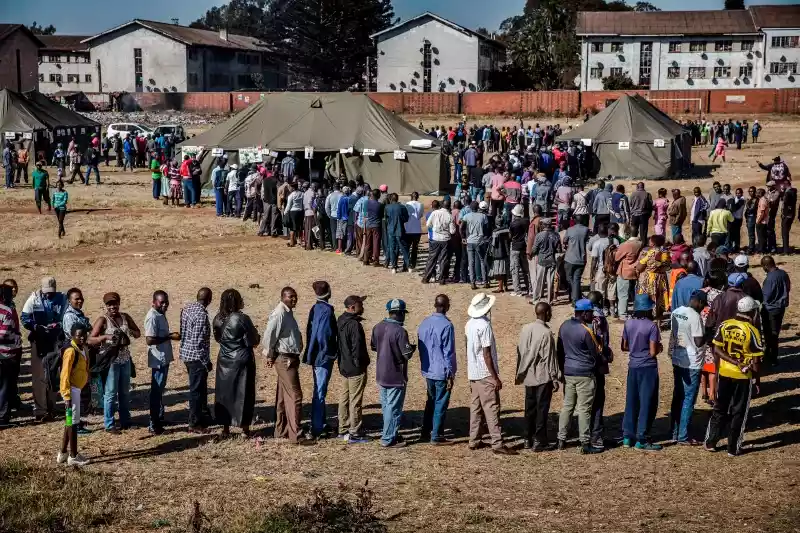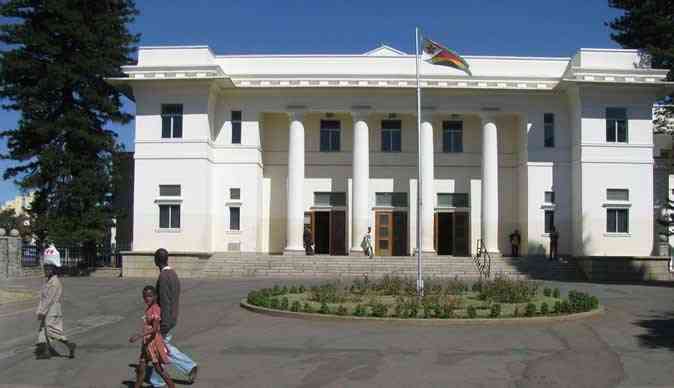
BEYOND any reasonable doubt, the 2023 Zimbabwe elections are the worst since independence. Yet this plebiscite, in a strange way, leads us closer to a collective response to our shared governance problems. We must all be ashamed — the “winners” and “losers”. For that reason, I am hopeful.
The “losers”, far from being just those whose names were on the ballot, is everyone who sought to achieve change. For losers, the shame is in how we allowed for so long performative democracy to take root, and not root out bad governance and bad behaviour before it mutated into the monster and mess we see now. We must take collective responsibility and be ashamed of our failure to unite and act with common purpose.
Many had predicted a bad election; the signs were all over. But none really predicted the extent of the masquerade. By nature, elections must have certainty of process and uncertainty of outcome, but not here. In Zimbabwe the winner is and must be certain. So, for 43 years elections in this country have yielded the same outcome, notwithstanding the constant downgrading of brand Zimbabwe. I refuse to accept that this is due to what the incumbent has to offer, unless it’s about prowess at manipulation.
Every single aspect of this election was litigated: delimitation; voters roll; nomination; nomination fees; statutory instruments gazetted for this election; accreditation, and so on. This is a serious indictment on the Zimbabwe Electoral Commission (Zec).
For the first time, the Southern African Development Community (Sadc) observer mission did not mince its words. The only other time an observer mission in Zimbabwe’s elections found clear fault in our elections was in 2002. The Thabo Mbeki-appointed South African judicial election observation mission of Justices Dikgang Moseneke and Sisi Khampepe, concluded that “having regard to all the circumstances, and in particular the cumulative substantial departures from international standard of free and fair elections found in Zimbabwe during the pre-election period, these elections, in our view, cannot be considered free and fair”.
More than any other time, post-independence, disenfranchisement was high in this election. And in arrogance and a sense of invincibility, foul-mouthed Zanu PF spokesperson Christopher Mutsvangwa told Zimbabweans a few weeks back at a Chatham House meeting that if they don’t like what is obtaining, they must go to war like what they did. The danger is this: When people continuously perceive elections as ineffectual in establishing consent between the government and the governed, that is a basis for the termination of the social contract.
It is painful to see fellow Zimbabweans being so blinded by a desire for victory or hatred for a political opponent to the extent of hearing and seeing no evil. Unfortunately, disputed elections hurt both the “winner” and the “loser”. Disputed elections are a threat to our collective security.
Our strand of elections in Zimbabwe legitimise autocracy; in reality when the will of the people is subverted at polls this amounts to an electoral coup. Zimbabwe is a performative democracy, an abusive constitutional State that survives by pretence; pretence of being a society of laws when it is rule by law; pretence of a society of values when integrity and common decency have long evaporated. Pretence of elections when the outcome must be one way. This is how the Zimbabwean State operates.
- RG's Office frustrating urban voters: CCC
- Fast-track delimitation, Zec urged
- 'Political parties must not be registered'
- Zec to address nomination fees outcry
Keep Reading
Musa Kika is the head of office (Barcelona) and director of external relations for the Institute for Integrated Transitions (IFIT). Kika most recently served as executive director of the Zimbabwe Human Rights NGO Forum, Zimbabwe’s biggest civil society coalition of human rights groups, where he also served as secretary of the National Transitional Justice Working Group.










